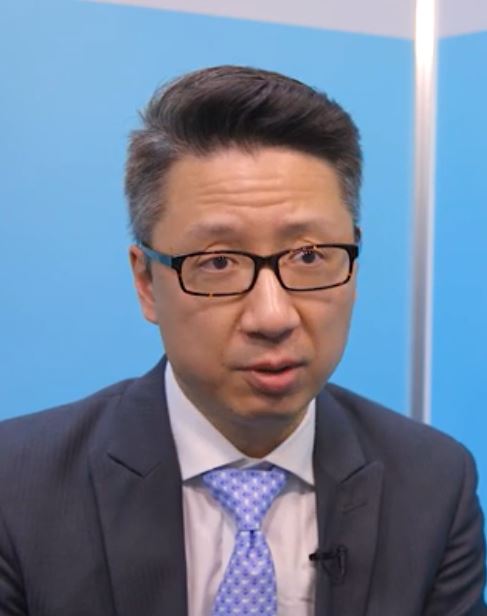Search results
Author(s):
Konstantinos Bratis
Added:
3 years ago
Takotsubo syndrome (TTS) is an acute, profound, but reversible heart failure syndrome, usually but not always triggered by physical or emotional stress. To date, the exact pathogenic mechanism of this syndrome remains unclear; however, several hypotheses involving vascular mechanisms (i.e. abnormal coronary epicardial or microvascular vasoreactivity),1-3 endocrine and gender-related mechanisms (i…
View more
Author(s):
Covadonga Fernández-Golfín
,
Jose Luis Zamorano
Added:
3 years ago
Since the introduction in the early 1980s of magnetic resonance imaging (MRI) in clinical practice, contrast agents (CAs) have been part of MR studies enhancing the capabilities of this diagnostic technique. CAs enhance the contrast between different types of tissues. Tissue contrast depends largely on proton concentration and longitudinal (T1) and transversal (T2) relaxation times inherent to…
View more
Author(s):
Prabhakar Rajiah
,
Milind Y Desai
Added:
3 years ago
Magnetic resonance imaging (MRI) has become an important non-invasive imaging modality in the evaluation of cardiovascular diseases because of advances in scanner hardware, coil technology, parallel-imaging techniques and MRI sequences, all of which facilitate the rapid acquisition of high-quality images. Several scientific studies validated the use of MRI in cardiovascular diseases and showed…
View more
Author(s):
Sebastian Kelle
,
Eike Nagel
Added:
3 years ago
Magnetic resonance imaging (MRI) is a powerful imaging modality for diagnostic cardiology and research. This imaging method provides combined diagnostic information of different tissue characteristics, such as the visualisation of the vascular tree and cardiac anatomy and function, as well as measurements of blood flow in the vessels, ventricular wall motion, myocardial perfusion and viability…
View more
Author(s):
Sophie Mavrogeni
,
George Markousis-Mavrogenis
,
Genovefa Kolovou
Added:
3 years ago
Systemic means ‘pertaining to or affecting the whole body’ as opposed to a localised condition. A systemic disease is one that affects a number of organs and tissues, or the body as a whole. Systemic diseases, according to WHO classification,1 and cardiac diseases that developed during their course, are listed in Table 1.
Download original
Thyroid diseases, pheochromocytoma and growth hormone…
View more
Author(s):
Tarun Pandey
,
Kedar Jambhekar
Added:
3 years ago
Diastolic dysfunction and diastolic heart failure (DHF) have shown a steady increase in prevalence over the course of the last decade.1 DHF is now regarded as a major public health concern. It shows an increasing trend with age and exceeds the incidence rate of systolic heart failure by the eighth decade of life.2 In fact, it is estimated that approximately 25–30% of individuals 45 years of age…
View more
Author(s):
Gianfranco Sinagra
,
Michele Moretti
,
Giancarlo Vitrella
,
et al
Added:
3 years ago
According to the latest position statement of the European Society of Cardiology (ESC), cardiomyopathies (CMP) are defined as “myocardial disorders in which the heart muscle is structurally and functionally abnormal, in the absence of coronary artery disease, hypertension, valvular disease and congenital heart disease sufficient to cause the observed myocardial abnormality”.1
CMP may be…
View more
Author(s):
Jean-Pierre Laissy
,
Jérôme Garot
Added:
3 years ago
Recent developments in cardiac magnetic resonance (CMR) imaging have led to a tremendous breakthrough in functional imaging and tissue characterisation of the left ventricular (LV) myocardium. Over the past few decades, numerous studies have shown significant improvement in CMR imaging of acute myocardial ischaemia and myocardial infarction (MI). Advances in hardware, acquisition sequences and…
View more
Author(s):
Peter Hunold
,
Jörg Barkhausen
Added:
3 years ago
There are many things in life everybody wants more of, and this is particularly true for magnetic resonance imaging (MRI). The major challenge in the daily life of an MRI professional is gaining maximal image signal and contrast in a reasonable amount of time. The application of gadolinium (Gd)-based MR contrast material has offered contrast features in MRI that have been used and appreciated for…
View more
Raymond Kwong
Job title: Director, Cardiac Magnetic Resonance Imaging / Associate Professor
Author











